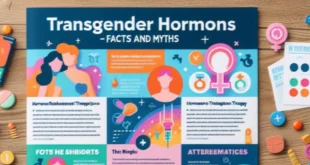What do the younger ones need ?
This is a little of what I have picked up over the last few years. Please bear in mind that everyone who is TS seems to be able to “cope” and pretend to be happy in their biological gender for a certain length of time, until suddenly a crisis enters their life and then they know that they cannot pretend any longer. This crisis can occur at any age. I’ve met or spoken to people for whom it has come in their 20’s, 30’s, 40’s, 50’s, 60’s and even 70’s.
The very worst time of all is puberty, as at this age you haven’t developed the life skills that help the older TS – even those in their 20’s, to achieve transition, with all the trauma that comes before, during and after. At this age you’re still stuck in school, with a load of twazzocks (idiots, etc.!) who know you’re different and remind you of it every minute of the day. At this age you’re still stuck at home with the family, you can’t leave home, you’re probably terrified of telling them in case they get angry/throw you out, etc. – and you know you can’t exist or get help without them. At this age you are immature, and the stress of this heap of trouble on your back holds back your maturity – it also leaves you prey to every illness under the sun, as your resistance to bugs is very much weakened.
On top of all this you’re also probably very bright, expected to do well at school, and the pressure is on to do well at those GCSE’s and A levels. Problem is, you can’t concentrate in school as all you can think about are those problems and how to sort them one day, you are dog tired as you can’t sleep properly, and on top of that you’re losing valuable time at school as you’re constantly ill. But you know that you gotta do at least the GCSE’s as it’s damn hard to get a job that suits your intelligence without them.
Life for the teenage TS who has already hit their crisis, is Sh*t.
They need:
- To know where to go for help, support, advice, etc.
- To be in touch with others their own age.
- To be able to start going out and socialising with other people, especially those their own age, but also with all other ages. During their teenage years they will have seriously missed out on having a gang or mates to go around with, they will probably have been isolated and may have led solitary lives. Sometimes by choice as they knew they didn’t fit in, sometimes because they will have been excluded.
- Their choice of social venue may not be the same as that of the older transsexual person (not necessarily though – I know there are some real swingers out there).
- Some will have been treated so badly by their peers that they will be scared of making friends with anyone, especially those close to their own age. They will need patience and sensitivity from those they turn to for help.
- They may need help in searching for suitable clothes – please bear in mind that they might need different fashion styles, more suitable to their own age groups.
- They might need advice on changing names/documents, etc. They might also need someone to “hold their hand” and help them do it.
- They might need advice on whether to transition before going to college or university, or to leave it until after they go there. They might need advice on whether to tell the university/college that they are Transsexual before they go there, or leave it until later.
- They might need advice on how to get GCSE and A level certificates changed to a new name.
- They might need reassurance on whether they look and sound right – they will appreciate tactful honesty so they can aim at getting things right, rather than someone telling them they look/sound fine (when they don’t quite) just to boost their confidence.
- They will need support and encouragement, but they will also need to be allowed to go at their own pace – they will not react well to being pushed too quickly.
- They may need sympathetic help in telling family, etc., or a phone number for family to ring for a chat.
- They might need help in choosing a new name.
- They might appreciate a place to stay for a while in an emergency.
- They might not like to be told – “It’s OK for you youngsters – we never had it so easy in our day” or similar remarks. Life will have been just as bad for them as it was for the older TS person, just different.
- Nor will they like to be told “Well at least you’ve started early enough not to have any …….. (facial hair/ children/ boobs/ marriage/ Adam’s apple) …. etc. They’ve probably had other problems that their advisor hasn’t. And they won’t like their experiences to be belittled by someone who might not have a clue exactly what it has been like.
- 16 and above – They especially won’t like to be reminded that at least they’ve started before they’ve brought children inro the world, as this makes things “easier” – they are probably desperate to have children one day, and know that transition, if they go all the way through surgery, will make them sterile.
- They may feel that they have spent most of their lives not being able to make their own free choices about what happens to them regarding the most important issue in their lives, i.e. gender. They may feel that they have been left with no control at all, their life being dictated by parents, teachers, doctors, etc. It is therefore important to find ways to allow them to begin to feel that they are gaining control over their own lives, to involve them in discussions regarding their present and their future.
Notes for non-UK readers:
- GCSE – General Certificate of Secondary Education – School certificate taken at age 16.
- A Level – Advanced level – School or college certificate taken at 18 or over (The official school leaving age is 16 but you may continue to remain at school until 18 to sit A levels or may take them at a Further Education College).
Secretary of Mermaids 1998, mermaids.freeuk.com/needs.html
 Lesbian, Gay, Bisexual, Transgender & Intersex News Lesbian News, Gay News, Bisexual News, Transgender News, Intersex News, LGBTI News
Lesbian, Gay, Bisexual, Transgender & Intersex News Lesbian News, Gay News, Bisexual News, Transgender News, Intersex News, LGBTI News




